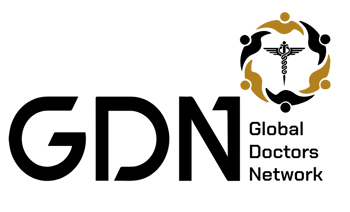

Reflection
All doctors need to learn the art of reflection however it is important to be safe when reflecting on events that have happened to patients or yourself. Reflections are personal so there is no correct way to reflect however they are structures that you can use to help guide you, particularly when starting out.

Crafting Reflections
Learn how to effectively write reflections for your portfolio to showcase your growth and insights.
Reflection Writing


How to write a reflection:
There are a number of steps involved in writing reflections and it takes practice to be able to write down your thoughts in a coherent manner particularly if this is something you have not done before.
Try to answer these questions to help structure your reflection.
What happened?
Brief description of events, keep this part factual but anonymous. It does not need to include all the details of the case/event, it should set the scene. Do not add in your perceptions or feelings at this point.
How did it make you feel? What were you thinking?
When you initially saw the patient how did you feel? Were you feeling confident about the case or not?
What were your emotions?
What were your thoughts?
What impact did the event have on your practice? Did it change your communication skills, team working or behaviour?
Consider whether the event links to the GMCs Good Medical Practice areas of Knowledge, Skills and Performance, Safety and Quality, Communication, Partnership and Teamwork, and Maintaining Trust
What have you learned from the event?
Did you identify any knowledge or skills gaps?
Did you identify any areas for improvement in patient safety?
What would you do differently next time?
What further learning do you need to do?
If you have identified a knowledge or skill gap how are you going to overcome this? Do you need to complete e-learning or attend a course to gain the required knowledge or skills?
In the UK, the GMC does not request your reflective notes however if taken to court the courts can request from you any reflective notes that you have made.
Tips for reflection:
Try not to focus on the details but more on your learning and development
Keep patients and other colleagues anonymous when reflecting, refer to people by their job title e.g. consultant/registrar/nurse.
In a serious incident, you should primarily focus on the learning from the situation and use the GMC Good Medical Practice areas to focus this e.g. from this event I realised that my communication skills could be improved for example had I said my thought process this would have allowed a shared thinking model and better teamwork.
Team reflection opportunities should also be available in your departments/hospitals particularly after significant incidents/serious incidents.
If you feel an incident has happened that should be highlighted to your department please follow local reporting processes usually available on your Trust’s intranet page or ask a colleague to help.
Triangulation of Evidence
This can help guide you when determining an appropriate learning objective from an event or case. It follows this method:
You identify a learning gap
You complete learning to address the gap
You complete another assessment to show that you have learnt new knowledge or skills and can apply it to future practice.
A simple example is this:
You see a patient with an acute kidney injury and a high potassium
You identify that you need to improve your knowledge on ECG changes in hyperkalaemia and management of hyperkalaemia
You complete e-learning on these areas and document evidence of this in your portfolio either via a certificate or a reflection on the learning
You see another patient in the future with hyperkalaemia and reflect on whether your previous learning helped you manage the case better and whether any further learning is required


